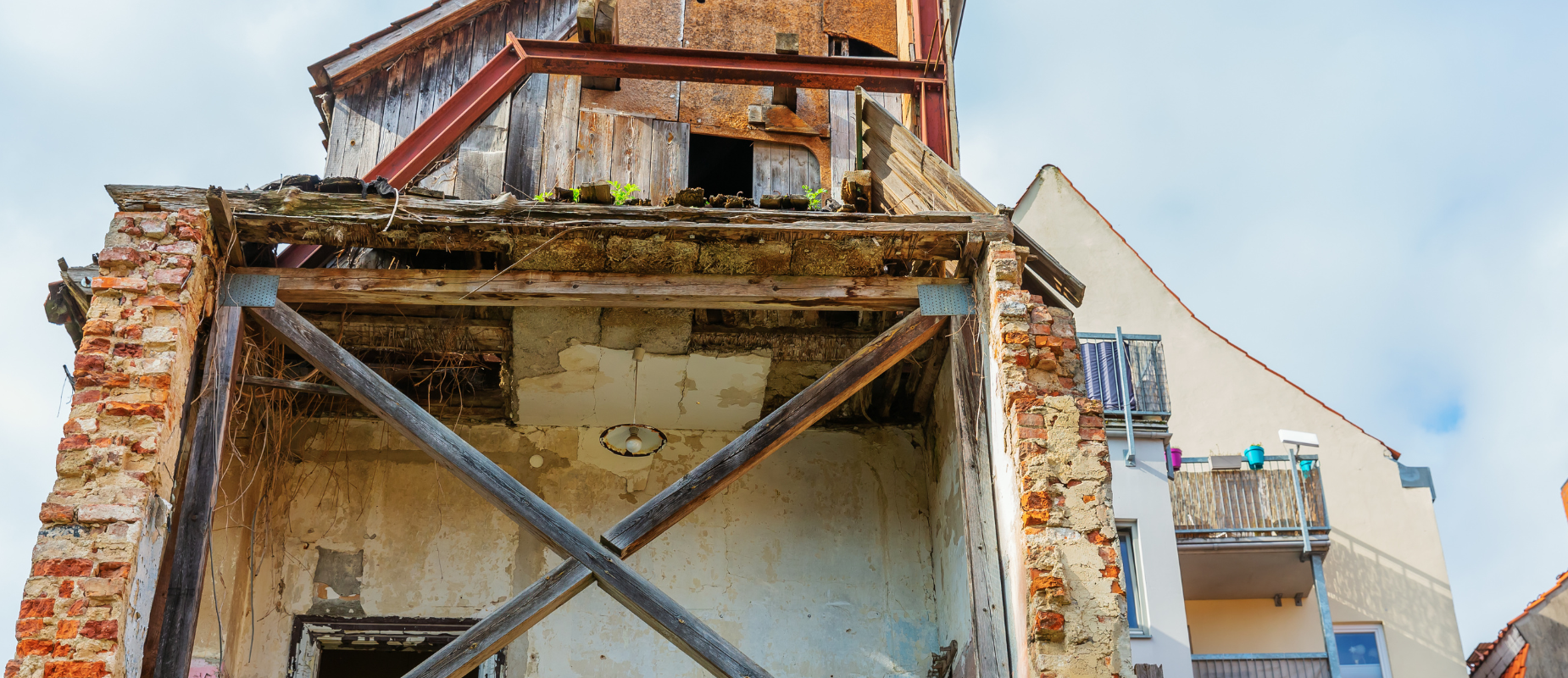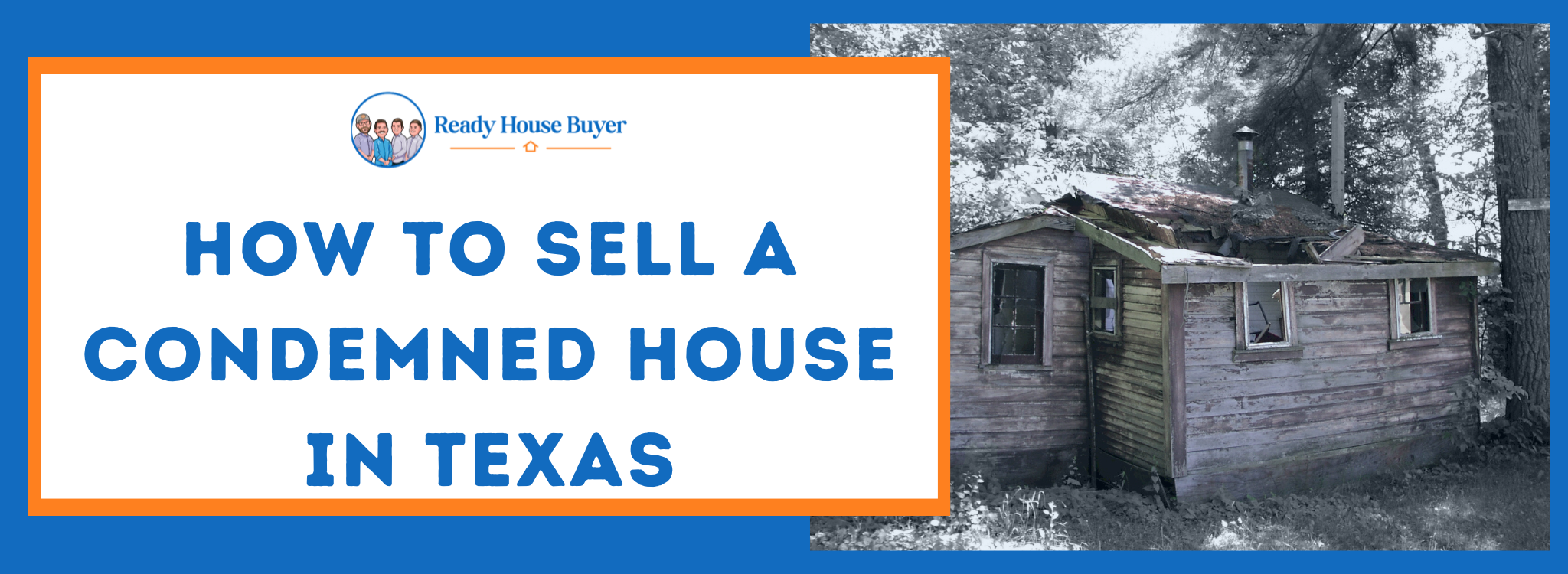
What Are the Steps to Sell a Condemned House in Texas?
Selling a condemned house in Texas can be tough, but understanding Texas real estate laws can make it possible. Here’s how you can do it.
Preparing Your Condemned House for Sale
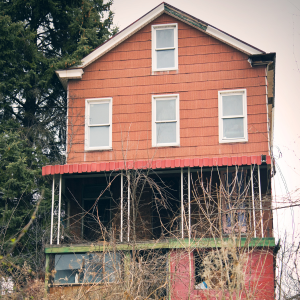
Before you list your condemned property, check its condition closely. This means looking at any structural issues and finding out why it’s considered unfit. It’s smart to get a property appraisal in Texas to know its value. Make sure all utilities are working, or let buyers know if they aren’t.
- Evaluate the Condition: Look for major problems in the house.
- Address Issues: Fix any issues that could increase the home’s value.
- Appraisal: Get a professional appraisal to set a fair price.
Marketing Strategies for Selling a Condemned House
To market a condemned property well, understand Texas housing trends and work with local real estate professionals. Offering incentives can make it more appealing. Use social media to reach more people and think about staging the home to show its potential.
- Incentives: Offer discounts or terms to attract buyers.
- Real Estate Professionals: Work with experts familiar with selling similar properties.
- Social Media: Use Facebook and Instagram to reach a wider audience.
Finalizing the Sale: Important Considerations
Make sure the sale follows all regulations by doing a thorough title search in Texas. Know the legal requirements for transferring deeds and the home closing costs involved. Proper documentation can prevent future legal issues.
- Deed Transfer: Learn Texas procedures for changing property ownership.
- Closing Costs: Be ready for fees when finalizing the sale.
- Title Search: Check for any claims against the property.
Legal Aspects of Selling a Condemned House in Texas
Understanding Texas real estate laws is key when selling a condemned property. Know the zoning laws and get legal help if needed to handle the complexities.
Understanding Texas Real Estate Laws for Condemned Properties
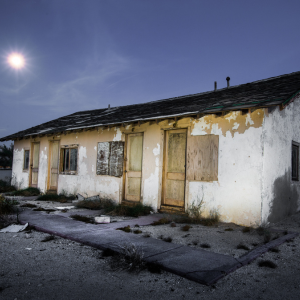
Texas real estate rules require attention to property deeds and legal paperwork. Talk to a lawyer to ensure compliance with building codes and solve any deed issues.
- Legal Advice: Consult with a real estate lawyer in Texas.
- Documentation: Make sure all paperwork meets state standards.
- Building Codes: Fix any code problems before listing the property.
How to Address Zoning and Code Violations
Zoning laws can affect the sale of a condemned house in Texas. Work with local authorities to clear up any code violations and ensure the property meets all rules.
- Compliance: Bring the property up to code if possible.
- Local Authorities: Work with city officials on zoning matters.
Navigating Liability Issues
Liability is a big concern when selling a condemned house. Legal help can reduce risks tied to the property’s condition and disclosures. Make sure your insurance is sufficient and understand all related home selling fees in Texas.
- Insurance: Review your policies to cover potential liabilities.
- Disclosures: Clearly disclose the property’s condition to buyers.
- Legal Representation: Hire a lawyer to protect your interests.
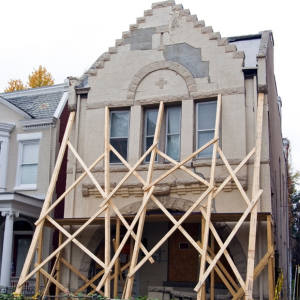
Who Buys Condemned Houses in Texas?
Do you have a condemned house in Texas and wonder who might buy it? There are several buyers who focus on condemned properties:
- Cash Buyers: In Texas, cash buyers often look for condemned houses to purchase as-is. They like to close deals fast without waiting for inspections or repairs.
- Investor Property Sales: Some investors see condemned properties as a chance to make money. They know how to turn fixer-uppers into homes ready for the market.
- Fixer-Upper Buyers: These buyers search for homes that need repairs. They enjoy fixing them up and saving money by doing the work themselves.
These buyers all aim to find value in these houses, even when others might not.
Identifying Potential Buyers for Condemned Properties
To sell your condemned property, it’s key to know who might be interested:
- Real Estate Investors: They often look for properties in bad shape as investments. They know how to handle problems with condemned homes.
- Local Wholesalers: Wholesalers connect sellers and buyers, using a large network to find people eager to buy these properties.
- Online Platforms: Websites that list distressed properties can help reach interested buyers. Listing your home, there makes it more visible.
By reaching out to these groups, you can find someone ready to buy your condemned house. Make sure any contracts are checked carefully, considering Texas laws.
Can You Improve the Value of a Condemned House Before Selling?
Boosting the value of a condemned house can seem tough. However, with the right actions, you can make the property more appealing. In Texas, repair costs and local real estate rules are important. This guide shows how to increase property value before selling.
Minor Repairs vs. Major Renovations
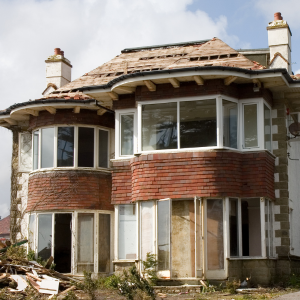
When deciding between minor repairs and major renovations for a condemned house, it’s important to think about cost and time.
- Minor Repairs: Focus on fixing small issues like leaks or patching walls. Even simple updates like replacing old lights can change how buyers view the property.
- Major Renovations: Think about fixing big structural problems that may scare off buyers. Although renovation costs in Texas can be high, solving these issues can make your property more attractive to buyers.
How Landscaping Can Affect Property Value
Landscaping can greatly improve your property’s first impression. In Texas, enhancing outdoor areas can add value:
- Simple Enhancements: Cutting overgrown bushes, adding native plants, and keeping the lawn neat can instantly improve its appearance.
- Property Value Boost: A well-kept yard not only looks nice but also raises the property’s worth, making it more appealing to buyers.
Utilizing Professional Cleaning Services
Using professional cleaning services can help present your condemned property at its best in Texas:
- Deep Cleaning: A good clean removes grime and odors, making the place feel fresh. This is especially crucial for properties labeled as condemned.
- Staging Assistance: Clean and tidy spaces make home staging easier, helping potential buyers imagine living there.
How Does the Condemnation Process Affect My Sale?
Grasping the condemnation process is key when selling a condemned house. In Texas, it affects both marketability and the sale process.
Overview of the Condemnation Process in Texas

The condemnation process in Texas involves checking the property’s condition and its compliance with state rules. Understanding these regulations helps when dealing with local authorities and buyers, leading to clearer communication and smoother sales.
Impact on Property Value and Marketability
The value and marketability of a condemned house are greatly affected by its perceived worth. Consider these factors:
- Distress Sale: Often, condemned properties are sold cheaper because of urgency and risks seen by buyers.
- Market Trends: Keeping up with Texas property taxes and market trends helps set realistic sale prices.
Managing Buyer Expectations
Successfully managing buyer expectations is important when selling a condemned property:
- Transparency: Be open about the property’s condition and any legal obligations from the condemnation process.
- Working with Local Authorities: Make sure all legal documents are ready and easy to access. This reassures buyers about the sale’s legitimacy.
What are the Costs Involved in Selling a Condemned House?
Selling a condemned property in the Texas real estate market can be challenging, but it is manageable. Knowing the costs involved helps you make smart choices.
Fees and Charges Specific to Condemned Properties

When you sell a condemned house in Texas, expect certain fees and charges:
- Texas Property Taxes: You’ll need to pay any outstanding property taxes before selling.
- Legal Representation in Texas: It’s helpful to hire a lawyer who knows Texas real estate regulations. They can assist with legal matters, including zoning laws.
- Compliance with Zoning Laws: Make sure the property follows local zoning rules. This might require spending extra money.
Cost of Legal Advice and Documentation
Getting legal advice is important when selling a condemned property. Here are some common costs:
- Legal Advice: A real estate attorney guides you through the legal process and helps you follow the laws.
- Real Estate Disclosures in Texas: You must disclose any known problems with the property or risk legal trouble.
- Texas Home Selling Fees: These can include notary fees and closing costs.
- Title Search in Texas: A title search ensures the property is free from liens or other legal issues.
Should You Hire a Realtor or Sell Directly?
Choosing to hire a realtor or sell directly depends on your situation:
- Texas Realtor Services: Realtors help market the property and negotiate with buyers, making the sale smoother.
- Local Real Estate Professionals: They know the local market well, which could help you sell faster.
- Sell As-Is Home in Texas: If you want to avoid repairs, selling “as-is” may attract cash buyers looking for quick deals.
- Quick House Sale in Texas: Selling directly can be quicker, but it means handling more paperwork and negotiations yourself.
Marketing Tips for Selling a Condemned House in Texas
Selling a condemned house in Texas can be tough, but with the right plan, you can find a buyer. Knowing the Texas real estate market and getting help from local real estate professionals is key. Here are some tips for marketing your condemned property well.
How to Write an Effective Property Listing
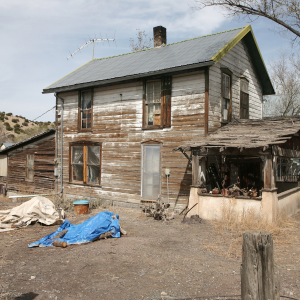
Creating a strong property listing is important when selling a condemned house. Here are some tips:
- Highlight Assets: Talk about any special features or potential the property has, like its location or lot size.
- Use Good Photos: Quality images matter. Show both the problems and potential of the property.
- Be Honest: Clearly state the house’s condition and that it’s condemned to avoid future legal problems.
- Use Keywords Wisely: For better search results, include terms like “Texas house selling tips” and “real estate disclosures Texas.”
Using Social Media to Reach Potential Buyers
Social media can help you find potential buyers fast:
- Targeted Ads: Use ads aimed at people interested in fixer-uppers or redevelopment.
- Interesting Content: Post about the property’s potential using images and stories.
- Community Groups: Share your listing in local real estate or home renovation groups.
Partnering with Local Real Estate Professionals
Working with local real estate professionals who know the Texas market can help:
- Choose Experienced Professionals: Pick experts who know how to sell condemned properties and understand Texas real estate rules.
- Full Services: Find experts who offer marketing help and set a fair price based on Texas housing trends.
- Networking: Experts can connect you with investors who want properties like yours.
What Should You Disclose When Selling a Condemned House?
Knowing what to disclose when selling a condemned house is key to following Texas laws and gaining buyer trust.
Required Disclosures in Texas

Texas real estate laws say you must share certain details:
- Property Condition: Say clearly that the property is condemned.
- Structural Issues: List any known structural problems.
- Legal Requirements: Make sure all documents meet Texas real estate disclosure laws.
How to Transparently Communicate Property Issues
Being clear about property issues is important:
- Full Disclosure: Tell buyers about current problems, like foundation issues.
- Provide Documents: When possible, give inspection reports or repair estimates.
- Honesty: Being upfront helps maintain transparency and avoid legal issues.
Building Trust with Potential Buyers
Building trust helps make a sale successful:
- Offer Incentives: Think about covering closing costs to make offers more attractive.
- Reassure Buyers: Share steps taken to assess and fix major issues to reassure buyers.
- Open Communication: Regular updates and answering questions build confidence in the deal.
By following these tips, you can market a condemned property in Texas effectively, find the right buyer, follow legal rules, and stay transparent.
FAQs:
What is a condemned house, and how can I sell one in Texas?
A condemned house in Texas is a home marked unsafe to live in because it breaks safety rules or codes. To sell it, check for any structural problems and know the local laws. Some buyers like to buy homes that need fixing. You might sell “as-is” to an investor who knows about condemned properties.
Can I sell a condemned building in Texas without repairing it?
Yes, you can sell a condemned building in Texas without fixing it. Just be sure to tell potential buyers about all the issues leading to condemnation. Some investors or house flippers like to buy these properties and handle repairs themselves.
What steps should I take to prepare my condemned property for sale?
First, find out why the property is condemned, like electrical or structural problems. Talk to local authorities to learn the rules and see if there are any programs to help fix the house. Also, sort out any mortgage defaults before selling to make the process easier.
Are there specific financing options for buying condemned properties in TX?
Regular banks might not offer loans because these homes are seen as high-risk. Look for lenders who specialize in distressed properties. They may need financing to buy and fix these homes.
Can I market a condemned house effectively?
Yes, you can market a condemned house by focusing on its potential, not its current state. Highlight things like the location or lot size. Use online listings, auctions, and real estate professionals who specialize in similar properties to attract buyers.
How do condemnation laws affect selling my Texas house?
Texas condemnation laws require you to disclose problems and may require repairs or demolition. Knowing these rules helps avoid legal trouble after the sale. A lawyer or experienced realtor can guide you.
What are common issues leading a house to be condemned?
Houses are often condemned due to big structural issues, pest infestations, or disconnected utilities. If not maintained over time, damage can grow and need major repairs. Fixing these problems can make the property more attractive to buyers.
Is it possible to fight a house condemnation in Texas?
Yes, you can challenge a condemnation, but you’ll need to know local codes and laws. You must also show proof that the house is livable or has been fixed. Working with local officials and possibly hiring a lawyer can help your case.
Key Insights
- Selling a condemned building in Texas means knowing your property’s status and following local construction rules to meet safety codes.
- We help homeowners overcome challenges such as structural issues, electrical needs, and utilities to make their homes habitable.
- The condemnation process in TX can start because of infestations or unsafe conditions identified by local authorities that need practical repairs.
- Buying and selling condemned properties requires checking all deed issues and understanding real estate regulations for a smooth deal.
- Flippers might be interested in distressed homes, using equity and financing to fix up the property or consider demolition.
- Strategies include marketing the house, staging it for better views, and handling home inspections and realtor services.
- Legal help is important for managing home sale contracts and dealing with the complexities of a condemnation status.
- Over time, it’s valuable to think about getting abatement rebates and meeting convenience needs when selling an inherited house.
- We offer helpful tips to overcome the challenges of a condemned status, providing advice to boost the property’s appeal.
Are you wondering how to sell a house in Texas? Whether you’re in Dallas, Houston, San Antonio, Austin, Fort Worth, El Paso, or any of the surrounding areas, this guide will provide valuable insights to make the process easier. Not only do these findings apply statewide, but we can also help simplify the process by offering to buy your house directly. If you need assistance or want to sell your home quickly, don’t hesitate to reach out to us at (214) 225-3038. We’re here to help!
Sell Your Texas Home 85% Quicker Than With An Agent
Get a Fair Cash Offer in 24 Hours | Close on Your Terms! We buy houses in Texas and the DFW area in as-is condition—no cleaning, repairs, or fees required. Skip the realtor and sell your house fast for cash, no matter the situation. Choose your closing date and get paid quickly. Fill out the form now to get started!

